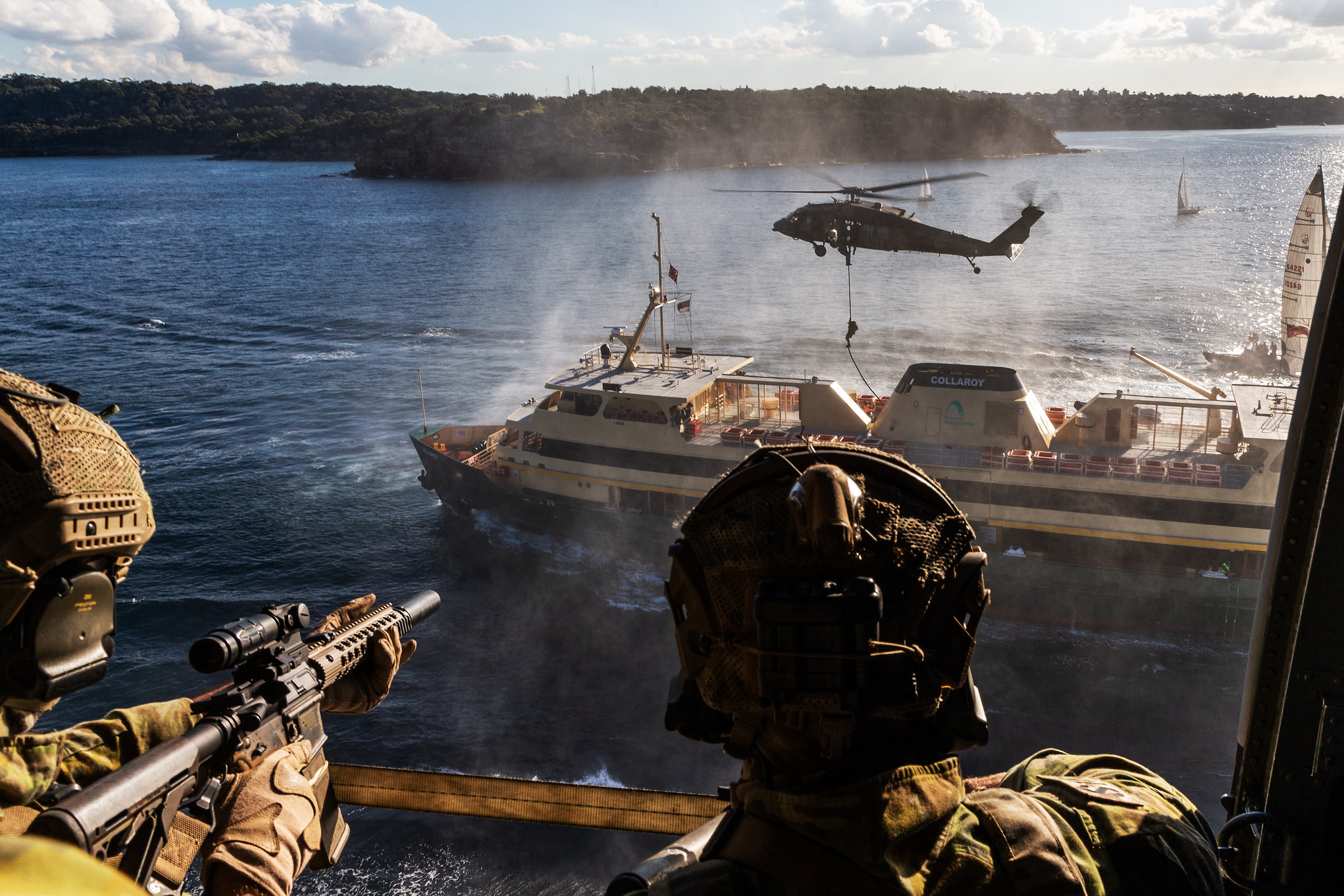In launching last week’s inaugural Army Leadership Seminar (31 Jul – 01 Aug 19), LTGEN Rick Burr, the Chief of Army, explained that our Army is active every day; across a spectrum of cooperation, competition and conflict. We are simultaneously engaged in various domains and in different places along that spectrum. This is the character of ‘accelerated warfare’, and LTGEN Burr emphasised that Army’s leaders must understand this complex and challenging environment in order to act effectively. The seminar provided a diverse and wide-ranging discussion on leadership, and this wrap-up will explore some of the prominent themes of the discourse.
“What is it I am trying to achieve?” If a leader can’t answer this question in a precise and decisive way, then they must ‘go back and do [their] homework’. This was one of the lessons from MAJGEN Stephen Day, previously Coordinator-General for Drought and head of the Joint Agency Drought Taskforce. MAJGEN Day reminded the audience that as leaders we cannot confuse ‘how’ we are trying to achieve something with ‘what’ we are trying to achieve. That is, you don’t progress by meandering energetically around an objective which you never identified. You must be honest with yourself and when asking “what are we trying to achieve?” frank discussion and feedback provides clarity; dispensing any ambiguity around your commander’s intent.
Brigadier Scott Winter, Commander 3rd Brigade, reinforced this point when presenting on mission command as a battlefield imperative. He reiterated that if we are to truly embrace mission command we must avoid telling subordinates ‘how’ to complete a mission and instead focus on ‘what’ the mission is trying to achieve. We can’t afford to disregard the commander’s intent when delivering in orders, because that’s what allows subordinates to identify the ‘point of battle’, and actively shape and influence the battlefield by engaging their own initiative. In an environment of chaos, friction and uncertainty, we require commanders who are empowered to accept risk and take the initiative.
Mission command requires mutual trust and a shared understanding of risk. That trust must be built between commanders and subordinates through habitual training regimes. COL Matt Stevens advised being brilliant at the basics is the foundation of building trust. Further, he proposed that mission command will not work without trust and so we as leaders should strive to create an environment where people feel comfortable with being critiqued. Army’s people must be comfortable with failing and learning from that failure. We must ensure that ‘lessons identified’ become ‘lessons learned’. This was echoed by LTCOL Duncan George (NZDF) who stated that fear of negative coverage is drummed into junior leaders early on. In a hierarchal environment, a fear of failure can be entrenched. We must embrace failure and give our people room to fail so that they can learn. To return to COL Stevens, he stated that an “autocratic style doesn’t suit us [the Australian Army]” and that “we need our leaders to cut their teeth and learn”.
WO1 Kim Felmingham, RSM 2nd Division, checked egos by reminding us that the Army doesn’t want you to replicate yourself in others; the Army needs cognitive diversity to excel in a contemporary operating environment. That is, nobody has the monopoly on good ideas.
Dr Jemma King reinforced that we can’t simply be transactional managers; leaders have to be charismatic, transformational leaders. We must become a leader of leaders. Although we are first and foremost a warfighting institution, our leaders spend most of their time in management and administration rather than performing military activities. However, we train the latter more than the former so a training gap exists. We also fail to prioritise emotional intelligence and achieving a ‘human touch’ within our teams.
CPL John Limbert, Forces Command’s 2018 Soldier of the Year, spoke about emotional intelligence and the human touch from his perspective as a Non-Commissioned Officer. He brought to the forefront that Army can tend to prioritise process and yield in place of its people. Although we are taught that service means adopting an ‘Army first’ mentality, we cannot forget that Army needs its people. He asked us to reflect on whether we were teaching our people emotional intelligence or just talking about it; especially at the lower level where self-imposed deadlines in the barracks environment can have detrimental effects. When the individual doesn’t feel cared about, they leave. This was also touched on by RSM 2nd Division who reminded us that if people aren’t listened to then they just leave.
It is imperative that we continue to discuss leadership and consider it a lifelong pursuit. We must build our emotional intelligence and apply this by building a culture of empathy within our teams whilst still engaging with the hard skills that are fundamental to building competence and trust. We require both of these to effectively implement mission command; it may prove a prerequisite to success in a future environment where chaos and uncertainty are the most powerful tools of the enemy.
It’s vital that leaders fail now, because in a warzone you either get it right or you endanger the mission, your people and yourself. To end with a powerful quote from MAJGEN Day: “if you’re not failing or making mistakes, you’re either not doing anything or you’re not trying hard enough”.
About the Author: Officer Cadet Zavier Radecker is a trainee officer in the Australian Army. He is currently studying a Bachelor of Arts majoring in International Political Studies and History. He is an eager reader and a passionate advocate for professional military education.

